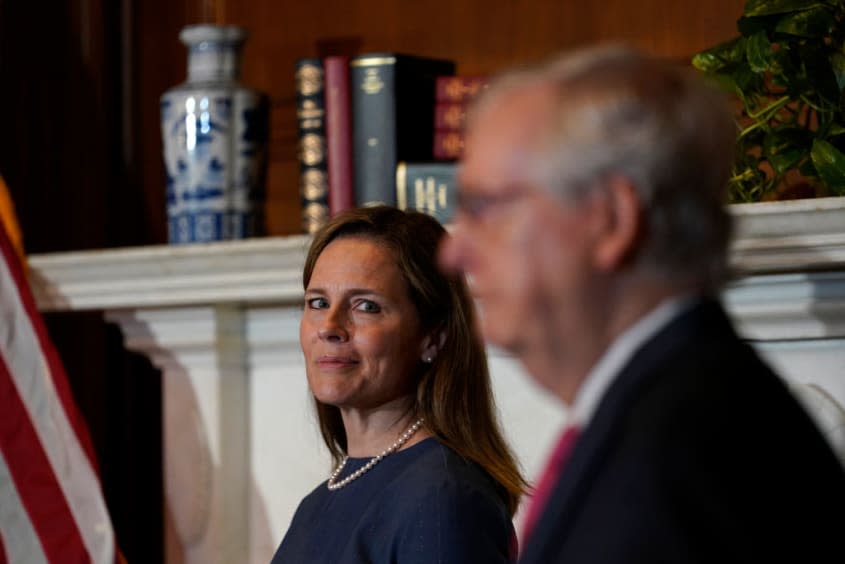Justice Amy Coney Barrett, in McConnell Center speech, insists the Supreme Court isn't 'partisan hacks'

- Oops!Something went wrong.Please try again later.
Supreme Court Justice Amy Coney Barrett tried to draw a sharp line between "judicial philosophies" and "political parties" in a lecture Sunday night at the 30th anniversary celebration of the University of Louisville's McConnell Center. "My goal today is to convince you that this court is not comprised of a bunch of partisan hacks," she said.
Senate Minority Leader Mitch McConnell (R-Ky.) introduced Barrett, saying she is from "Middle America" and doesn't try to "legislate from the bench." Some of the students at the event asked Barrett, in written questions submitted beforehand, about the Supreme Court's 5-4 "emergency" order effectively banning almost all abortions in Texas and other "shadow docket" decisions with huge effects on policy with no public hearings or serious discussion. She said it would be "inappropriate" to comment on specific cases or "emergency" decisions generally.
McConnell founded the McConnell center in 1991 and, as Senate majority leader, pushed through Barrett's party-line confirmation a year ago, a little over a month after the death of Justice Ruth Bader Ginsburg and shortly before Republicans lost control of the White House and Senate in the 2020 election. Democrats had objected to Barrett's confirmation, citing among other things McConnell's argument four and a half years earlier that justices shouldn't be confirmed in the months before a presidential election.
McConnell's moves to deny President Barack Obama's nominee a hearing for months combined with pushing through Barrett's nomination a week before the 2020 election cemented conservative control of the Supreme Court for years or decades.
Barrett on Sunday argued that's not the right way to look at the high court. "The media, along with hot takes on Twitter, report the results and decisions" from the Supreme Court in a way "that makes the decision seem results-oriented," she said. "It leaves the reader to judge whether the court was right or wrong, based on whether she liked the results of the decision." She added that "sometimes, I don't like the results of my decisions. But it's not my job to decide cases based on the outcome I want."

